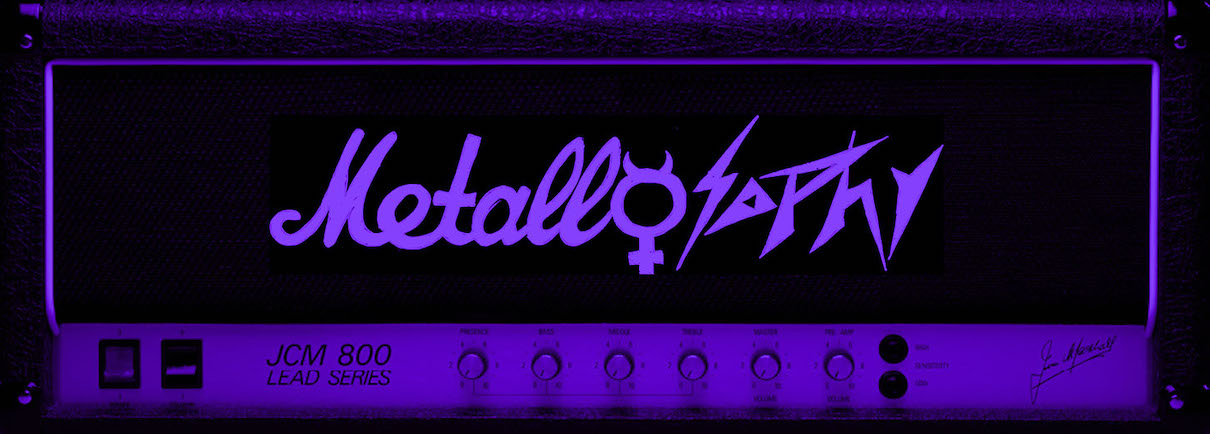von UltraViolet aka U.Violet, zuerst erschienen bei www.Saitenkult.de:
DORDEDUH -Interview
Jun 08, 2021
“There is a cosmic heritage that we forgot about”
~ An interview with DORDEDUH’s mainman Edmond ‚Hupogrammos‘ Karban ~
With his bands NEGURĂ BUNGET and their follow-up DORDEDUH, Hupogrammos has not only added Romania with a bold mark on the map of progressive Black Metal, he also pushed the boundaries of the genre into the widely unknown territories of our inner selves, the unconscious and the most hidden parts of the human psyche. No other band offers a more spiritual access to dark aural delicacies, which not only feed the spirit, but also heal the soul; and they do this with an ever growing creativity and virtuosity.
DORDEDUH’s new album ´Har´ literally blew me away (see our review here) and is already a candidate for the album of the year. We were therefore very happy to be able to ask Hupogrammos a few questions about this masterpiece and beyond…
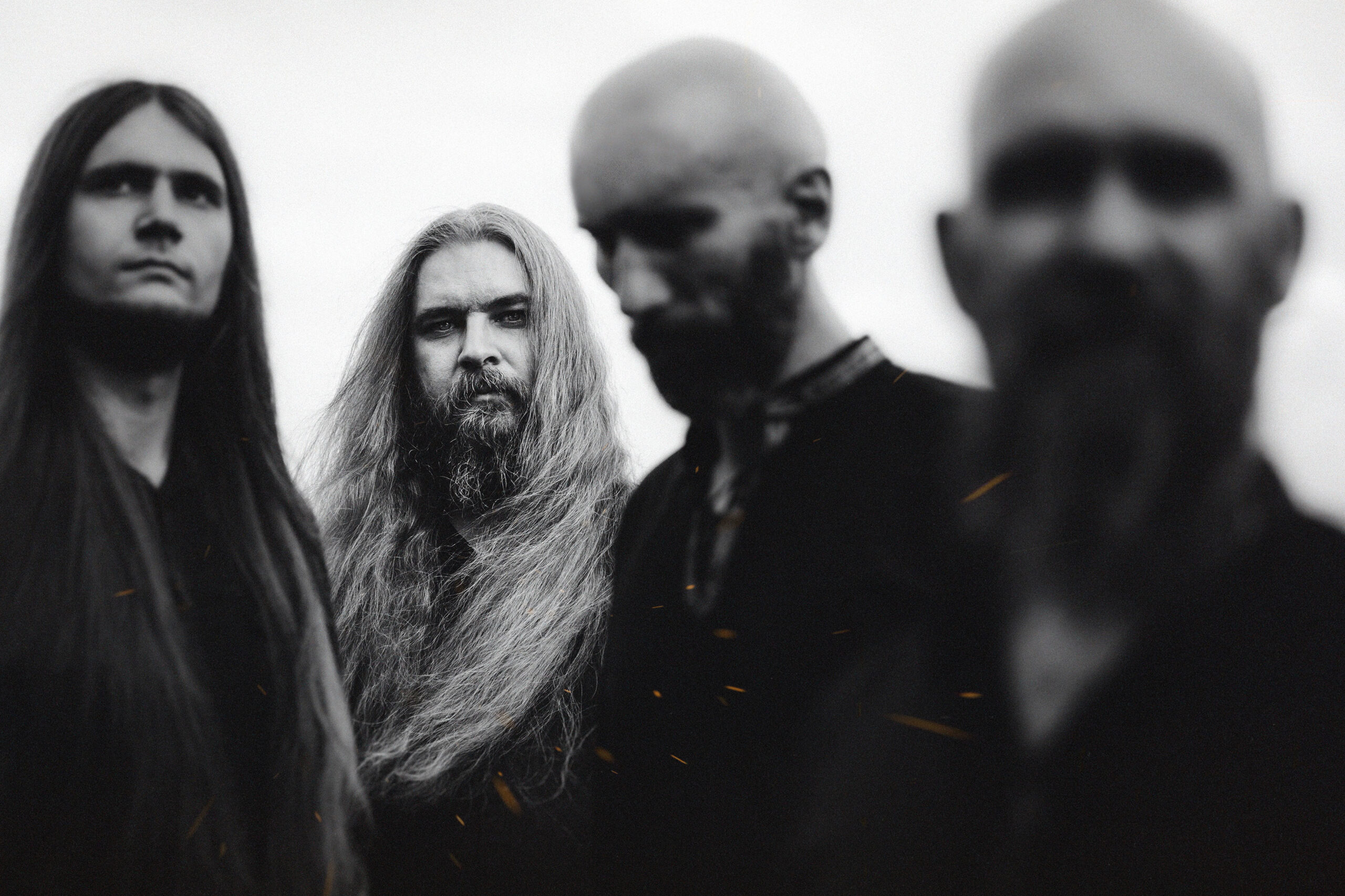
Listening to ´Har´, you are almost automatically reminded of NEGURĂ BUNGET’s masterpiece ‚Om‘. How did you feel when you woke up in the morning of October 27, 2006, and how now on May 14, 2021? Do you know yourself that you have created a particularly outstanding album? And how important is the reaction of listeners and fans for you?
I prefer to not know what other people think about what I created. I don’t think it’s good for me from a productive point of view. I can be influenced by someone’s opinion, especially if that opinion triggers a reaction in me. This reaction can influence my future creative process. So, I prefer to keep the influences out of my range to keep the creative process as pure as possible. On the other hand, to see things from other people’s perspective can be something nice, too. One can learn from other people’s reaction.
A lot has happened in the 9 years since ‚Dar De Duh‘, you have become a father, and with SUNSET IN THE 12TH HOUSE and TRANSCEATLA you have two more bands. Sol Faur is also active with you in the first one, and in 2015 you released ´Mozaik´, a very successful album. How long have you actually been working on ‚Har‘? Is the unbelievable richness of detail, the complexity and depth of the songs also due to this long time of creation?
I started working on it probably about 4 years ago. But it took me some time till I managed to put everything in a form that would be comprehensible for my colleagues. About 3 years ago we started to work together and the album was ready to be sent to Jens Bogren to be mixed in May 2020. We received it mixed and mastered in July 2020.
How is your process of composing new songs organized, and how does the distribution of the instruments work – Sol Faur plays many of them just like you do, how do you decide who takes on what? Who are the other two members of the band, especially the new drummer, Andrei? Do they also contribute to the compositions? Does the individual musical taste and background of all band members influence the mix of genres which is especially divers in ´Har´?
I usually come up with the general idea of an album, but it’s not mandatory to be like that. There’s a concept that we wrap the album around, and I usually start to write music around that. Sol always comes up with some parts by himself that we later adapt to fit the context. We usually share duties in the orchestration parts on the album and usually perform what we’re comfortable to play. It’s never the case who does what; it’s more about serving the purpose of the album. Everybody does the best he can. Andrei shapes and brings his mastery to the rhythmic parts of the album. We spent a lot of time working on the details of the drums and percussion parts. We wanted to have them right, because that’s actually the foundation of an album. This album had to groove, and when the foundation is right and without compromises, everything else fits much better into the context.
We met Andrei when he was 16. He came to record the drums for a death metal album in our studio. We started working with him in TRANSCEATLA, and now he ended up playing in all my bands and he’s currently hired in our studio where he does the main job of the studio. He’s a very talented and hard-working guy. Rarely one finds both attributes in one person. But most importantly, he became one of my best friends.
When we finish the whole orchestration, we usually have a defined idea about what the bass lines should be. Flavius is on the third record with us, he’s probably one of the best bass players I ever met and he’s a close friend above all. He’s the one who brings extra groove into our music. First of all, he’s able to perform all our crazy requests, and his input is always based on a mature opinion and experience.
After all that comes the recording process, which is another subject by itself.
A characteristic of DORDEDUH is the unconventional and completely organic use of all kinds of traditional instruments. What is their respective role within the songs, which meaning should they express?
We use these instruments in order to expand our possibilities of expression. For example, on the rhythm section the percussion we use are obviously bringing different colors and flavors to the music, but also play what drums can’t play. One can’t mimic the sonority of a hammered wood with a standard drum kit. The same happens with the panpipes, or the hammered dulcimer. Those kind of instruments can bring a better touch on the emotional themes, besides enriching the tonal spectrum with the specific sound of each instrument. All in all, adds much more to the expressive side of the music.
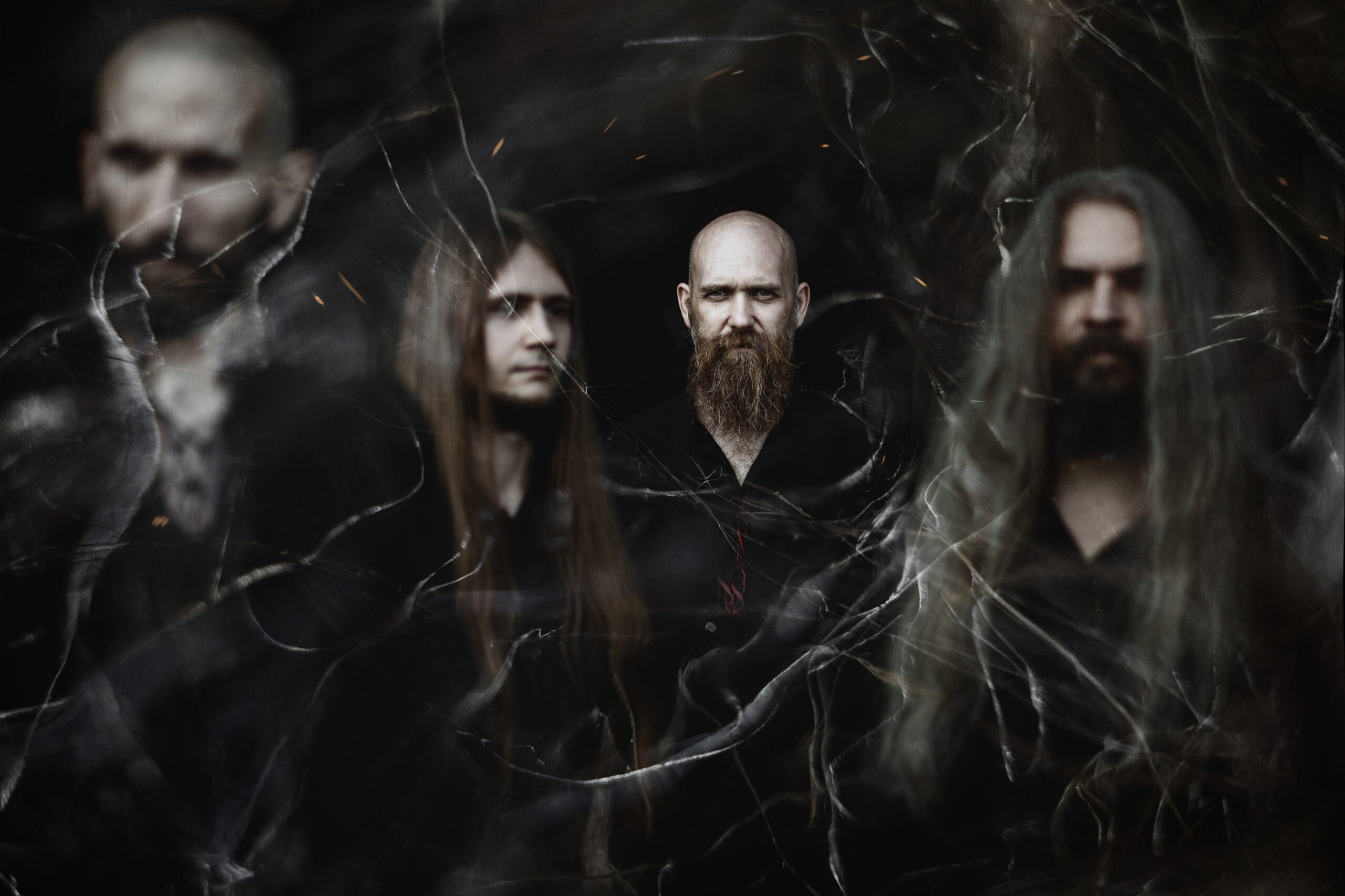
In contrast to your previous records, be it with NEGURĂ BUNGET or DORDEDUH, which were produced in a very rough and black metal-esque way, ´Har´ is characterized by a very transparent, flawless and full sound, which will surely attract new listeners. Where did this change come from? Does that also have something to do with the decision to choose Jens Bogren as a producer, even though you run a studio yourself?
First of all, we wanted to bring more objectivity to our music. It’s really difficult and time consuming to mix and master your own music. You know all the hiccups and all the strong points of I,t and you know what you want to obtain as a final product. All these are positive point,s but on the other hand there’s the problem that you can’t see beyond your music and your own vision; you have your subjective goals, which could be relevant or not, but that’s it. When an engineer or producer listens for the first time to the tracks, he doesn’t know all the efforts and compromises you did till you reached that point. He will see it from an objective point of view, and he will take decisions free of any kind of previous bias.
And because we tend to be perfectionists, we chose the best engineer and producer out there, Jens Bogren. Gunnar Sauermann (Prophecy Productions, Metal Hammer etc., AN) introduced me to him, he liked our music and our perspective for this album. He did a really good job and he was bringing that objective view to our music that we probably could not have reached by mixing this album by ourselves. We’re very happy with our choice.
Your vocals have changed a lot, this time they are particularly radiant, powerful and diverse. How do you choose what you sing clear or growled, is there also a contextual connection with the lyrics (which I unfortunately do not understand – but I can tell you that they already get translated on the black market…!)?
Regarding the lyrics, we will put the best translation we could reach for both our albums on our website www.dordeduh.ro. Regarding my vocals, thanks for the compliment. I direct my vocal options according to the lyrical context, but also in tune with the musical context.
I feel uplifted, built up, positively motivated by ‘Har´, the music makes even me, a rather thoughtful person, immediately happy, I feel almost relieved and blessed when listening – which was different on your debut, although I also appreciate it a lot. There is something transforming about the record, it seems to me as if it were again a musically told story about personal development, but this time from a clearly grounded, very self-confident location. Is it some kind of hero’s journey? What is the secret, the message of this record? Is there also a numerological concept behind it? And what is the meaning of the title, ´Har´?
Har means grace; divine grace if you want. And yes, the album is about transformation, a journey each one of us embark, willingly, or unwillingly, consciously, or with ignorance.
One could say that the story of this album is about the journey of a sort of a “hero”. I would see it more from Plato’s perspective of the “perfect model” archetype view, where every entity is a copy of a perfect model. So, it’s rather about an impersonal view, more like talking about the possibilities and the aspirations our human form could / would have to reach the best version of us.
Undeniably, the influence of the landscape around you and its history has always been important in your music, and made your sound very unique. It sounds like a wooded, wild mountain area, with lots of fresh air and a wide horizon. How closely are you connected to nature around you, how much inspiration do you draw from it?
I know that this is not what people expect, but we have close to zero interest in history. We don’t sing about anything related to our history, traditions, or ancestors. Yes, I’m probably influenced by nature from an environmental perspective, because I live in a rural area of our country. My main inspiration comes from my call and my yearning for the spiritual realm. And that’s exactly our name: Dordeduh – yearning for spirit.
Especially in folk / black metal, musicians live or even embody their natural spirituality. Is DORDEDUH kind of a personal mission to make the world a better place? Or is it rather a self-therapy?
You could say both, from a modest point of view. I’m not more knowledgeable than any next person to me.
On the other hand, I think that each person has a calling, even if they’re not aware of it, which is more a matter of anamnesis (Plato). But I feel that one of my main callings in life is to gently remind people that there’s a cosmic heritage that we kinda forgot about and which is harder and harder to regain.
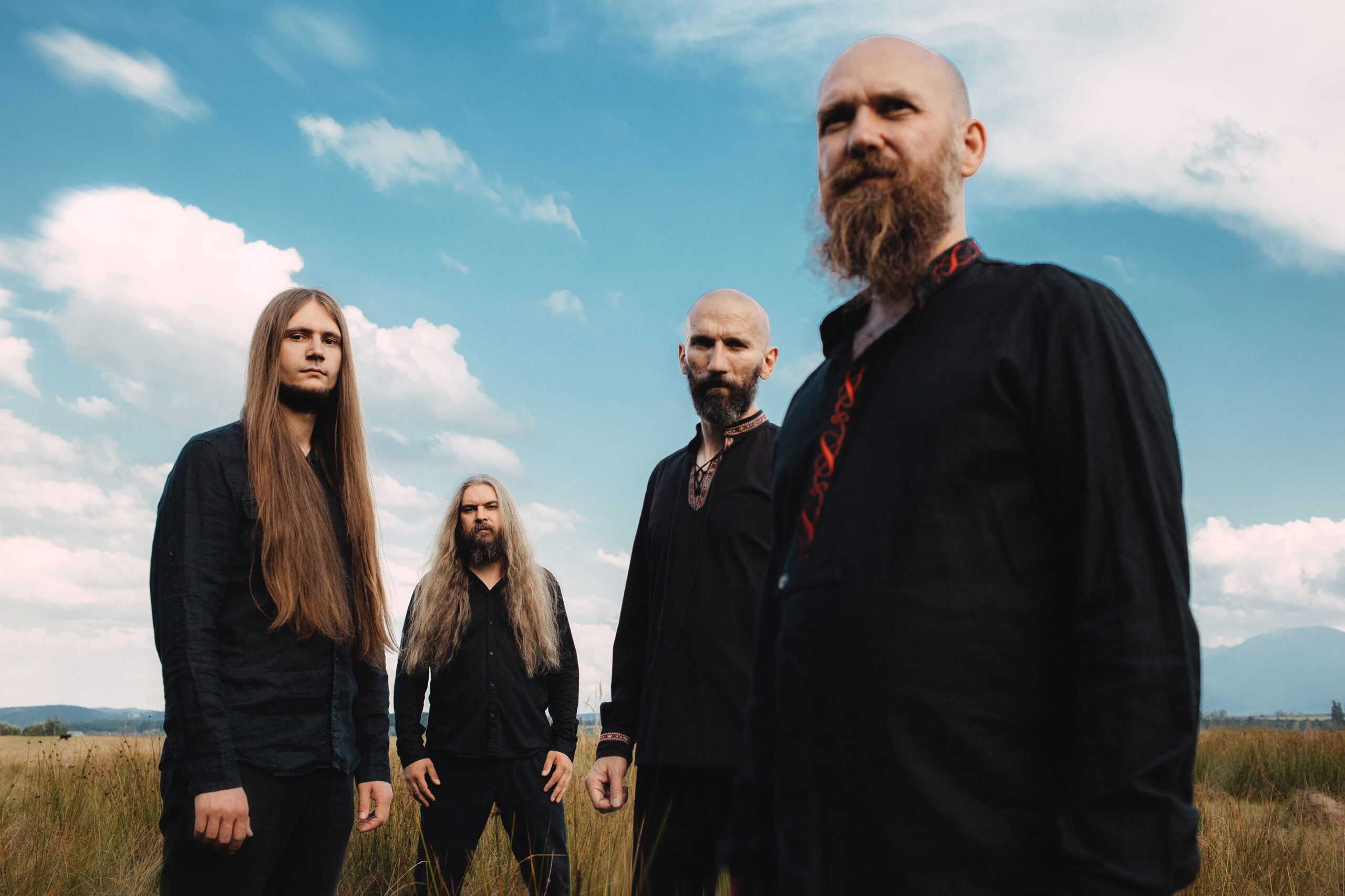
The video for ´Desferecat´ (see below…) shows Sol Faur and yourself meditating. Transcendence, connection to the world behind the veil and the search for meaning are integral parts of your philosophy of life. What spiritual practice do you exercise yourself? Which ones do you recommend to your fans, especially for beginners?
I am in no position to advise anything to anyone in this regard. I would only invite them to walk their path, because most of us have to obtain the best of us through hard work, focused, with a clear mind and lighthearted.
As for the cover and the illustrations of ´Har´, you once again worked with Costin Chioreanu. Is there a mutual inspiration being expressed here? How important is the overall aesthetic package to you? What is the meaning of the human being in the octahedron of the cover with its different colors?
The story is interesting with this cover. Costin asked if we would allow him to do our cover without any input from us. We said yes, because we wanted to externalize this aspect like we did with the mixing and mastering, for an objective view. He nailed it from the second attempt and I think it fits very well with the album.
Regarding the octahedron: everyone can check the meaning and the symbolism of an octahedron in the occult context.

We’ll continue with aesthetics – as usual, I’ll close the interview with a few synesthesia questions:
Colors can stand for elements, feelings or chakras, amongst many more meanings. Which colors represent the band members best for you?
Indigo represents the band.
If ´Har´ were a house, where would it be located, what materials would it be made of, and which song would occupy the most central or largest room? Which plants would grow in the garden around it? What would be the smell of this place?
Place – the realm of consciousness. Material – ether. Song – the paths between songs. Silence. Plants – the tree of life (Sephiroth). No smell.
If DORDEDUH were a cult, what would its symbol be? What material would it be made of?
Dordeduh can’t be a cult.
In which environment do you feel most comfortable and which sounds do you associate with it?
The realm of consciousness. No sound. No thoughts. Just silence.
Please select three of your favourite songs of all time – what kind of drink would they be and how would each of them taste?
ZYKLON B – ´Warfare´ – Poison – I would taste the revenge.
STRAPPING YOUNG LAD – ´Almost again´ – The wine of pursuance – I would taste the courage of the fallen.
ENYA – ´Orinoco flow´ – Soma – It would be the taste of perfection.
Perfection seems to me the perfect conclusion for this enlightening and insightful interview. Edmond, thank you very much for your art, and for taking your time to answer our questions!
And to those of you who may still not know ´Har´, take your chance to delve into an endless journey to the meaning of life… now.
https://www.facebook.com/Dordeduh/
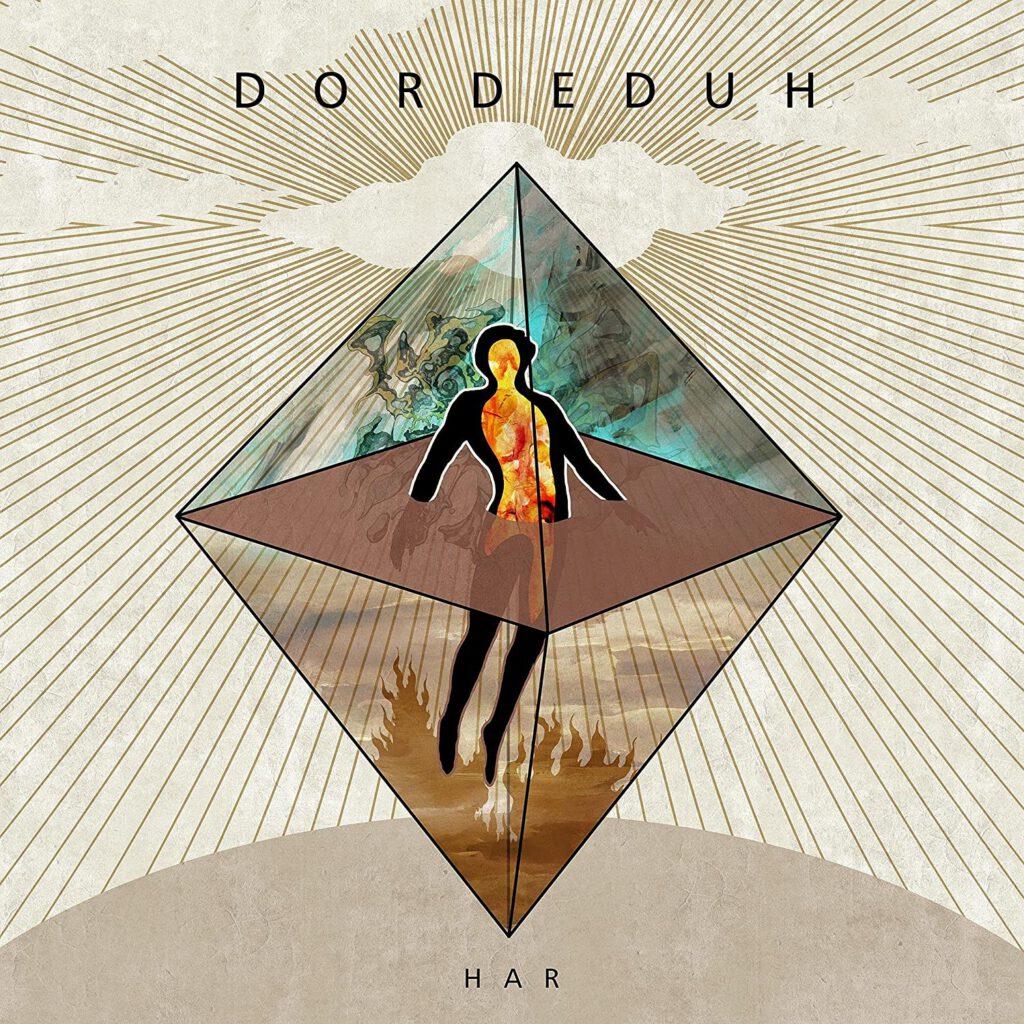
DORDEDUH – Har
Mai 16, 2021
~ 2021 (Prophecy Productions) – Stil: Progressive/Pagan/Black Metal ~
Auf meiner Suche nach Waldmeister & Maiwipfeln hatte ich treue, ja hartnäckige Begleitung im heute gar nicht dunklen und nebligen Forst. Vom NEGURĂ BUNGET (so die rumänische Übersetzung) kann der Ohrwurm [i] daher kaum gekommen sein – oder etwa doch? Bringen wir mal etwas Licht ins Unterholz…
Vor 12 Jahren verließen die beiden Hauptsongwriter und Multiinstrumentalisten Edmond „Hupogrammos“ Karban und Cristian „Sol Faur“ Popescu die Band und gründeten kurz darauf DORDEDUH; Schlagzeuger Negru führte NEGURĂ BUNGET bis zu seinem plötzlichen Tod 2017 mit neuen Musikern weiter. Drei der verbliebenen Mitglieder formierten wiederum ein Jahr später SUR ASTRU, es gibt heute also zwei Bands, die das Vermächtnis der bedeutendsten rumänischen Folk/Black Metal-Legende am Leben halten. Doch – Vorsicht, Spoiler! – wer das große Erbe einer Band, die ihrer Zeit schon immer voraus war, tatsächlich bewahrt, indem er es auf eine ganz neue Ebene hebt, das machen die beiden Originalmitglieder nun mit ´Har´ endgültig deutlich.
Vor 9 Jahren ließ ihr LP-Debüt ´Dar De Duh´ aufhorchen, war es doch noch experimenteller, was den Einsatz einer Vielzahl folkloristischer Instrumente aus allen Ecken der Welt und vor allem die so facetten- wie kontrastreiche, immer wieder überraschende Ausgestaltung der acht Longtracks betrifft; aber gleichzeitig immer noch der dissonanten schwarzmetallischen Wut und Düsternis verpflichtet, die sich stets mit einer latenten Melancholie abwechselte. Das Herz von NEGURĂ BUNGET war zurück! Doch sein Schlag hatte sich verändert – eine über das bisher von ihnen gewohnte hinausgehende Schwere durchzog dieses ambitionierte Album, es ist künstlerisch hochfliegend, doch in seinem Fokus auf Rückblick und Verarbeitung negativer Emotionen viel mehr der Vergangenheit verhaftet, als Erneuerung, Vision und Transzendenz zu bieten. Doch wie sich nun zeigt, weisen, wie so oft, die letzten Songs den Weg zurück in die Zukunft…
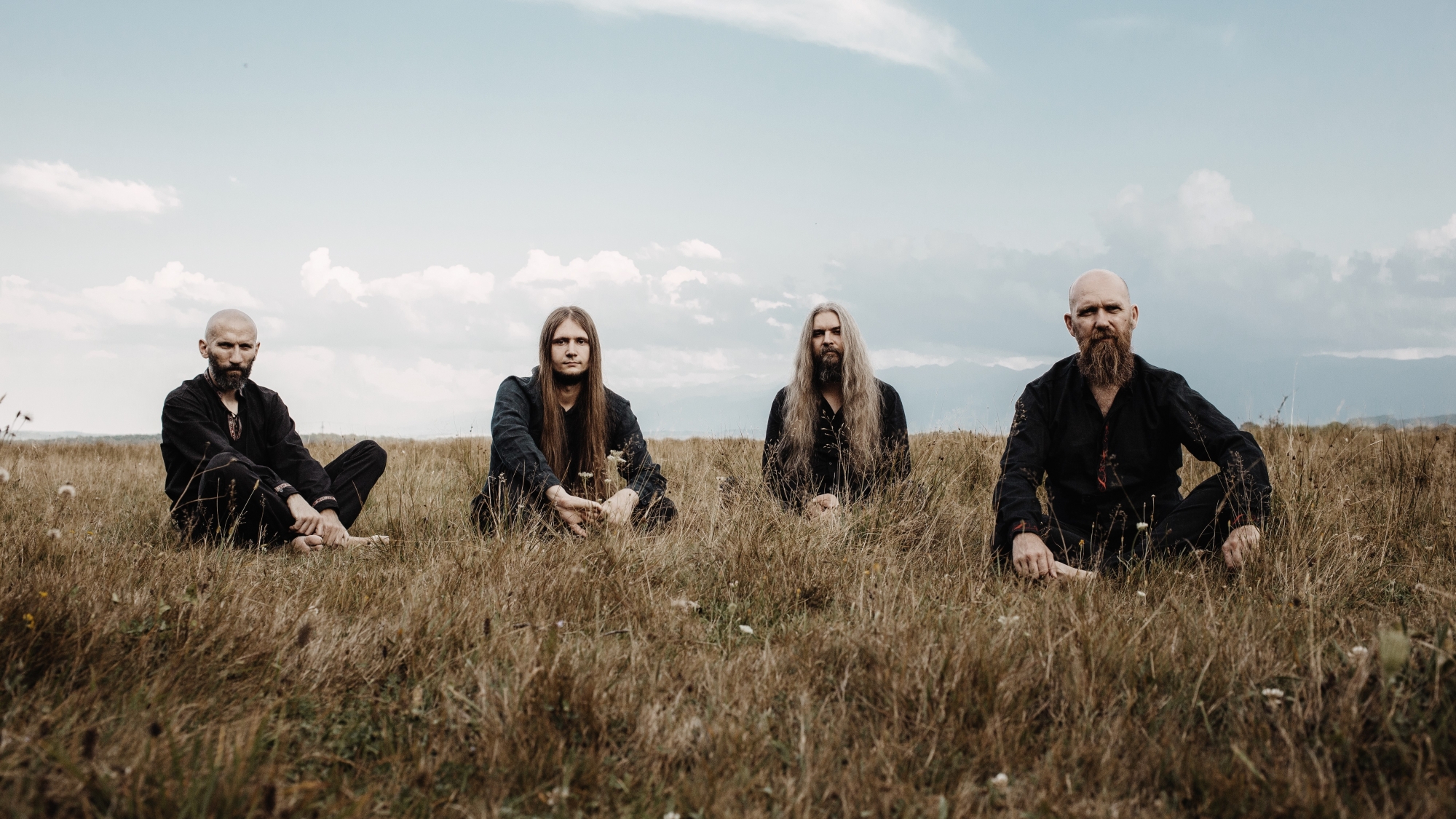
…denn sie erinnerten frappant an das Meisterwerk transsilvanischen Metal, das herausragende ´Om´ aus dem Jahr 2006. Und hier schließt sich der Kreis: mit ´Har´ machen Hupogrammos und Sol Faur genau dort weiter, wo sie vor 15 Jahren aufgehört haben. Ihr meint, ich übertreibe? Keineswegs. Das mit Flavius Misarăș am Bass und Putrid am Schlagwerk vervollständigte Quartett hat nichts weniger als die diesjährige Referenzplatte abgeliefert, was die Fusion von Pagan- und Progressive Metal angeht (ENSLAVED haben ja erst letzten Oktober ´Utgard´ herausgebracht und werden nicht so schnell nachlegen…), und damit gleichzeitig einen ganz heißen AOTY-Anwärter ins Rennen gebracht.
Und nun wird es spannend. Seit Tagen versuche ich hineinzuspüren und herauszubekommen, was ´Har´ außer seiner absoluten kompositorischen und technischen Brillanz so magisch, einzigartig und innovativ macht. Klar ist bereits jetzt: dieses Album wird wachsen und wachsen, und in einem Monat werde ich ganz andere Schwerpunkte setzen oder Details entdecken als heute, auch wenn die Scheibe hier fast ununterbrochen läuft. Sie ist unglaublich abwechslungsreich, enorm vielschichtig, jedes Stück ist wie ein Fenster in eine jeweils vollkommen unterschiedliche Transsylvanische Landschaft oder ein anderes Zeitalter als das vorige, und dabei auch in sich stets so dynamisch und lebendig, gegensätzlich, abwechslungsreich und überraschend gestaltet, dass ich mich gelegentlich wundere, wie gut das alles zusammenpasst, sich zusammenfügt. Denn all diese Kompositionen fließen so organisch ineinander, dass man Zeit und Raum darüber völlig vergisst und mit Glück in einer träumerische, freudige Trance gerät. Hupogrammos mal harscher und dann wieder eindrücklich klarer, wie immer rumänischer Gesang übernimmt erzählend die Führung, Sol Faurs Gitarren brechen immer wieder in galoppierendem Riffing aus (´Timpul Intilor´, ´Vraci De Nord´) oder schweben schwelgerisch wie im Adlerflug über dem Geschehen, die Keyboards breiten einen weiten grünen Karpatenwaldteppich aus (´Desferecat´), und die neue Rhythmusgruppe legt ein federndes, ja bisweilen groovendes Fundament darunter (das zu Tränen rührende ´De Neam Vergur´) – alles gleichzeitig so warm wie knackig-brillant von Jens Bogren herausgearbeitet, der auch den diversen traditionellen Instrumente wie Hackbrett, Tulnic, Mandola oder Toacă ausreichend Platz lässt.
Wobei diese ungewöhnlichen Klänge die Songs meist perkussiv, fast rituell einleiten und sich dann wiederum völlig organisch integrieren, genau wie die opulent ausgedehnten Ambient-Anteile (´Vraci De Nord´ mit seinem Mittelteil zwischen Volkslied und Pop, die sperrig-anspruchsvolle erste Single ´Desferecat´, die sich nach einem tribalartigen Beginn zum elektronischen Filmscore entwickelt). Dabei gehen einige der stark rhythmusbetonten Songs sogar in die Beine und animieren zum Tanz, und vielleicht erklärt ja das die Faszination dieser Platte: sie ist eine Ode an das Leben, und könnte nicht deutlicher in die Zukunft gerichtet sein. Selbstbewusst atmet sie die Weite der Transsylvanischen Bergländer, doch ist sich ihrer Herkunft und Erdung dabei stets bewusst – es hat viel von einem Übergangsritus in acht Kapiteln, einer Lebens- oder Heldenreise als persönlichem Entwicklungsweg, und darauf deuten auch die Songtitel hin. Und damit beschreibt sie genau das, was DORDEDUH bedeutet: die Verschmelzung von Seele & Geist durch spirituelle Suche und Praxis, sich zum wahren Menschen entwickeln aus der Weisheit unseres gemeinschaftlichen unterbewussten Erbes heraus. Dann meint ´Har´ auch nicht mehr nur Talent oder Gnade, sondern göttliche Begabung. Und wer eine völlig neue, eigenständige, von sämtlichen Stil- und Spielarten losgelöste und dabei noch eingängige Art von Musik erschaffen kann, der hat den schwarznebligen Wald endgültig hinter sich gelassen, und den Blick frei in eine weit offene Zukunft. Klassiker!
(10 Punkte)
[i] ´Descânt´ ist mein Ohrwurm, der jedoch nur einen kleinen Einblick in das breite Spektrum dieser Platte geben kann. Enjoy!
